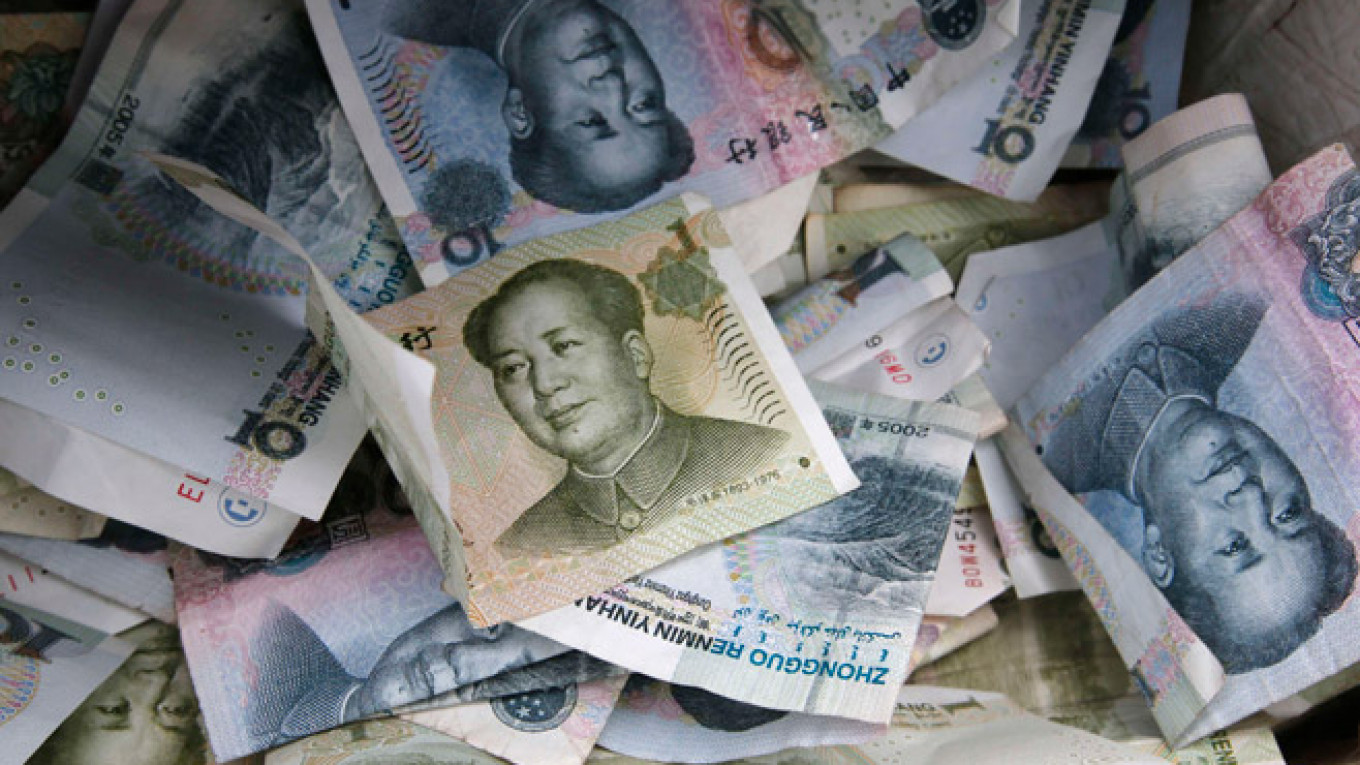Europe is rapidly losing its share in the Russian e-commerce market to Chinese firms whose steady growth in the region has been fueled by this year's headlong devaluation of the ruble.
About 70 percent of packages shipped to Russian consumers from abroad this year came from China, up from 40 percent in 2013, a report by industry watcher East-West Digital News (EWDN) found.
With the ruble having fallen nearly 40 percent against the euro this year, Russian consumers are ever more conscious of price — and if it's price you care about, Chinese retailers take the cake.
For this reason, even as they dominated by number of packages shipped, Chinese players' relatively cheaper goods took only 50 percent of total revenues in the cross-border sector this year, the study found.
While money was many consumers' main concern, some have deliberately turned away from Western vendors amid political tensions between Moscow and the West, said Adrien Henni, chief editor of EWDN.
Russia's annexation of Crimea in March and ongoing support for separatist rebels in eastern Ukraine has set off a deluge of international repercussions, including U.S. and EU economic sanctions against Russia and Moscow's retaliatory ban on a range of Western food imports.
But geopolitical tensions aside, well-known European brands are still doing well on the Russian market, said Yakov Geronimus, business director for China at Russian Internet giant Yandex.
Where China dominates is with customers who search for generic items — such as "buy dress online" — rather than specific brands, he said.
China's growth in the sector was driven by massive Chinese online marketplace AliExpress and Chinese sellers operating through Internet auction house eBay, the report by EWDN found.
AliExpress is now the single largest foreign player on the Russian e-commerce market with 35 percent of cross-border sales, business daily RBC reported last month, citing data from analytics company RBC Research.
In second place came eBay with 30 percent of the market followed by U.S. e-commerce titan Amazon with 7.5 percent, the report said.
AliExpress shouldn't rest on its laurels, however, as other Chinese producers and brands may soon be making their own bids to conquer the Russian market.
"Over the next few years … those who are now selling their products on online marketplaces will strive to open their own websites and independent advertising campaigns for Russian consumers," EWDN's Henni said.
Although diminished consumer spending power has slowed sales growth this year, Russia's cross-border e-commerce market still expanded from about $3 billion in 2013 to $5 billion in 2014, according to EWDN.
Other estimates are even higher. Denis Lyudkovsky, the president of Russia's Association of Online Vendors, or AKIT, said earlier this month that cross-border trade would grow to $7 billion and account for 30 to 35 percent of the total e-commerce market by the end of the year.
AKIT expects cross-border e-commerce trade will continue growing at a rate of more than 100 percent a year, claiming 60 percent of the total Russian e-commerce market in 2015.
Contact the author at d.damora@imedia.ru
A Message from The Moscow Times:
Dear readers,
We are facing unprecedented challenges. Russia's Prosecutor General's Office has designated The Moscow Times as an "undesirable" organization, criminalizing our work and putting our staff at risk of prosecution. This follows our earlier unjust labeling as a "foreign agent."
These actions are direct attempts to silence independent journalism in Russia. The authorities claim our work "discredits the decisions of the Russian leadership." We see things differently: we strive to provide accurate, unbiased reporting on Russia.
We, the journalists of The Moscow Times, refuse to be silenced. But to continue our work, we need your help.
Your support, no matter how small, makes a world of difference. If you can, please support us monthly starting from just $2. It's quick to set up, and every contribution makes a significant impact.
By supporting The Moscow Times, you're defending open, independent journalism in the face of repression. Thank you for standing with us.
Remind me later.






